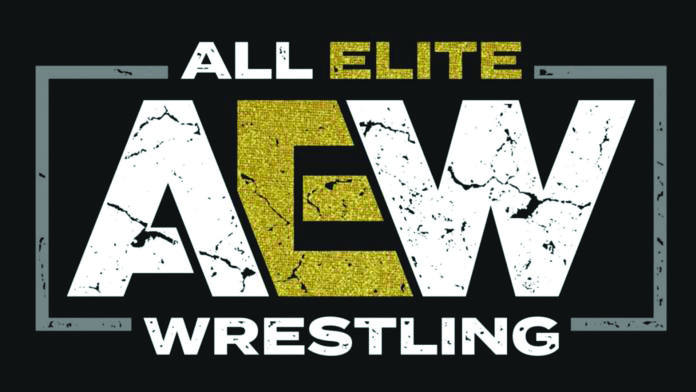Wednesday night wars
All Elite Wrestling: Contender or Pretender?
September 24, 2019
In May of 2016, Cody Rhodes was stuck painting his face and donning a full-body spandex suit. Saddled with a gimmick that mirrored that of his older brother Dustin, Rhodes was relegated to WWE’s C-level programming. It was a humbling experience for a second generation talent who was once earmarked to become a staple of the WWE main event scene.
After a match against perennial enhancement talent Zack Ryder, Rhodes decided that he had endured enough. He requested his release from WWE and embarked on a mission to reinvent himself overseas and on the independent scene. Rebranding himself as the “American Nightmare,” Rhodes made an immediate impact in New Japan Pro Wrestling (NJPW), joining the Bullet Club faction. In Ring of Honor (ROH) and Impact Wrestling, he was a featured talent, frequently challenging for the brands’ top titles. Rhodes’ success was inspiring, particularly for WWE talent who felt they were being underutilized.
However, Rhodes’s personal success did not reflect the success of the promotions he worked under. When Dave Meltzer of the Wrestling Observer expressed doubt that ROH could sell out a 10,000 seat stadium, Rhodes, alongside with Matt and Nick Jackson of the Young Bucks, responded by organizing an independent event called “All In,” hosted at the Sears Centre in Hoffman Estates. The event sold out within 30 minutes.
The success of “All In” changed the landscape of professional wrestling. Piggybacking off the success of “All In,” Rhodes, with the support of Jacksonville Jaguars owner Tony Khan, founded All Elite Wrestling, or AEW. AEW quickly began establishing itself as a viable alternative to WWE, poaching unhappy talent from WWE and assembling a collection of wrestlers from around the globe. However, despite the commercial success of its first four events, skeptics continue to question whether AEW can compete with WWE.
While AEW features an impressive roster, there is a perception that AEW is no more than a random assortment of WWE midcarders and indie gimmicks with one or two legitimate main event talents sprinkled in. AEW’s inaugural champion, Chris Jericho, will be a WWE Hall of Fame headliner once he formally retires. However, despite Jericho’s uncanny ability to rebrand himself and stay relevant, Jericho turns 49-years old this November. Furthermore, upon his departure from WWE, he was being used as a midcard act, playing Robin to Kevin Owens’ Batman.
Rhodes carries himself as a main event level talent, but the top tier placement seems more the resulting benefit of being a big fish in a small pond. If he were to make the move back to WWE, it is difficult to envision him as a staple of the main event scene (which is more a testament to the talent in WWE than an indictment on Rhodes.) Is he really more marketable than guys like Roman Reigns and Randy Orton? Is he a better in-ring performer than guys like Seth Rollins, A.J. Styles, Ricochet or Finn Balor? Is he better on the microphone than Samoa Joe, Kevin Owens or Bray Wyatt? Objectively, it is difficult to answer yes to any of those questions. The idea that AEW’s top talent would be overshadowed by their WWE counterparts poses a very real problem when attempting to shift public perception of AEW’s legitimacy as an alternative professional wrestling organization..
AEW will also have to compete directly with NXT on Wednesday nights. Currently, NXT is the superior brand between the two. Many, including this writer, believe NXT to be the best brand in all of professional wrestling, despite technically serving as minor league pipeline for WWE. However, WWE’s stepping stone promotion routinely overshadows its parent brand. In its brief history, NXT has produced six of the 20 highest rated matches in WWE history, as voted on by fans. Additionally, the viewer complaints that beleaguer WWE programming do not extend to NXT, which caters to die hard wrestling fans, the same demographic AEW is trying to appeal to.
So what might it take for AEW to emerge as a true challenger to the WWE’s position atop the mountaintop? First, AEW needs to produce quality content. While AEW’s pay-per-view events have been commercial successes, they haven’t been strong enough efforts to differentiate AEW from WWE, NXT or NJPW.
Second, AEW would need an impactful defection or signing. World Championship Wrestling (WCW) emerged as a legitimate competitor by signing talent like Kevin Nash, Scott Hall, Hulk Hogan and Lex Luger. To put that into perspective, WCW signing Hulk Hogan in 1994 was the equivalent of a rival promotion signing John Cena in 2019. Hogan’s defection was a shocking development that solidified WCW as a premier wrestling promotion. While AEW has strong financial backing from the Khans and a television deal with Turner Broadcasting, it is uncertain if they have the financial resources to offer enough money to recruit a big name away from WWE.
AEW’s best bet would be to contact CM Punk and make him an offer enticing enough to lure him out of retirement. Punk’s mixed martial arts career was, to put it kindly, a disaster. He was thoroughly outclassed by UFC rookies, prompting UFC president Dana White to sever ties. However, in professional wrestling, CM Punk’s legacy is untouchable. Should AEW find a way to appeal to CM Punk after a five-year absence, AEW programming would immediately ascend into must-see territory.
The jury is still out on whether AEW can pose a legitimate challenge to WWE. It is imperative that AEW make a move that will generate hype around their product while the concept is still fresh. Furthermore, WWE positioning NXT directly opposite of AEW has the potential to stunt the brand’s initial growth, perhaps enough to permanently derail AEW’s momentum. Considering both the substantial hurdles AEW will have to overcome to build a consistent fanbase, it would be premature to consider AEW a capable threat to WWE.








